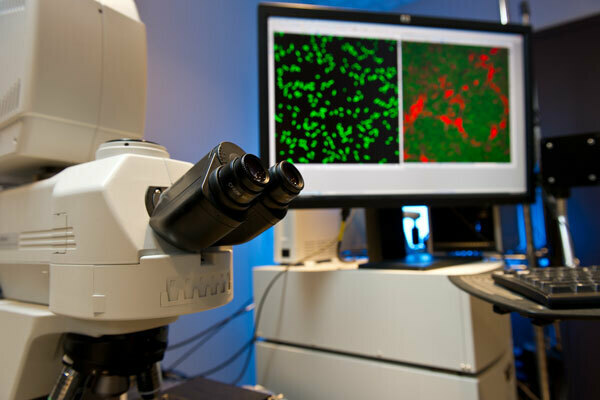
Notre Dame researcher explores bacteria beyond the ability of typical hospital setting
 Gail Weaver, post-doctoral research associate
Gail Weaver, post-doctoral research associate
Each year 332,000 total hip replacements are performed in the United States, according to the Centers for Disease Control and Prevention. Out of those, nearly one percent of patients will get an infection and require the removal of their prosthetic replacement. Even though a small overall percentage, still more than 3,000 people are likely to get an infection that, if left untreated, could result in amputation.
Gail Weaver, post-doctoral research associate of civil and environmental engineering and earth sciences (CEEES) who works with works with Joshua Shrout, associate professor of CEEES, received a Post-Doctoral Training Award from the Indiana Clinical and Translational Sciences Institute (CTSI). The award supports an on-going collaboration with Mark Klaassen, an orthopedic surgeon at Elkhart General Hospital, to collect bacterial samples from prosthetic hip joints that have become infected. The goal is to culture or grow the collected bacteria and develop laboratory best practices for studying multiple species infections.
“When bacteria that are typically harmless – like the normal bacteria that live on your skin – get into places they are not meant to be, they can cause a lot of trouble,” said Weaver. “To better understand which bacteria are involved and how they interact during prosthetic joint infections, I will use a variety of culturing methods. This will tease apart how diverse combinations of bacterial species interact and cause infections to behave differently, which could impact the way we treat and prevent prosthetic joint infections in the future.”

With the help of the Genomics and Bioinformatics Core Facility at the University of Notre Dame, Weaver will be able to conduct a DNA analysis of the bacteria, getting a better understanding of all the bacteria within the infection including dominate bacteria, slow-growing bacteria, as well as bacteria that cannot be easily cultured.
“The Genomics and Bioinformatics Core Facility, as well as a longer culture time, will help me identify any new players in a sample population,” said Weaver. “Typically a hospital cannot wait two weeks to culture bacteria to diagnose an infection, so this analysis will allow me to look at what else is happening in the infection that they may not be able to see.”
Currently, there are not many studies looking at how different bacterial species interact with one another and this research will help Weaver develop best practices for laboratories working with multiple species infections. This could include deciding what food sources should be used in growing a culture and what temperature the culture should be kept at, all in an attempt to not significantly favor one bacterial species over another in a simulated infection environment.
The Indiana CTSI is a statewide collaboration between Indiana University, Purdue University, and the University of Notre Dame, as well as public and private partnerships, whose mission is to strengthen and support the entire spectrum of translational research from scientific discovery to improved patient care. The Indiana CTSI provides funding opportunities for researchers and currently proposals for Global Health Research Pilot Projects and PDT Diagnostics and Therapeutics are open for applications. To learn more about CTSI or the Postdoctoral Training Awards, which provided the funding for this research, please click here.
Contact:
Brandi Klingerman / Research Communications Specialist
Notre Dame Research / University of Notre Dame
bklinger@nd.edu / 574.631.8183
research.nd.edu / @UNDResearch
About Notre Dame Research:
The University of Notre Dame is a private research and teaching university inspired by its Catholic mission. Located in South Bend, Indiana, its researchers are advancing human understanding through research, scholarship, education, and creative endeavor in order to be a repository for knowledge and a powerful means for doing good in the world. For more information, please see research.nd.edu or @UNDResearch.
Originally published by Brandi Klingerman at ctsi.nd.edu on August 04, 2016.